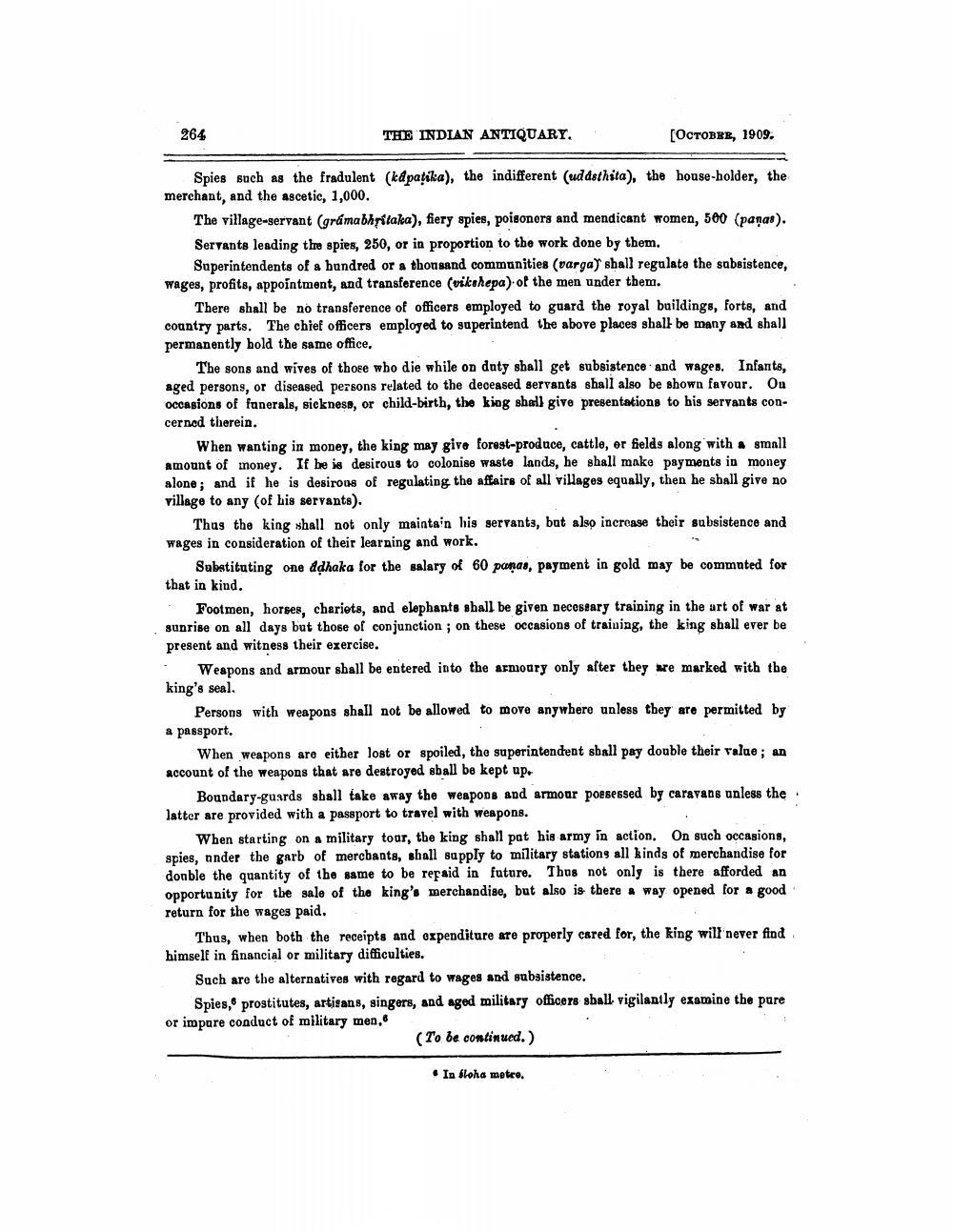________________
264
THE INDIAN ANTIQUARY,
[OCTOBER, 1909.
Spies such as the fradulent (kápatika), the indifferent (uddsthita), the house-holder, the merchant, and the ascetic, 1,000.
The village-servant (gramabhystaka), fiery spies, poisoners and mendicant women, 500 (paņas). Servants leading the spies, 250, or in proportion to the work done by them.
Superintendents of a hundred or a thousand communities (varga) shall regulate the subsistence, wages, profits, appointment, and transference (vikshepa) of the men under them.
There shall be no transference of officers employed to guard the royal buildings, forts, and country parts. The chief officers employed to superintend the above places shall be many and shall permanently hold the same office,
The sons and wives of those who die while on daty shall get subsistence and wages. Infants, aged persons, or diseased persons related to the deceased servants shall also be shown favour. On occasions of funerals, sickness, or child-birth, the kiog shall give presentations to his servants concerned therein.
When wanting in money, the king may give forest-produce, cattle, or fields along with small amount of money. If be is desirous to colonise waste lands, he shall make payments in money alone; and if he is desirous of regulating the affairs of all villages equally, then he shall give no village to any of his servants).
Thus the king shall not only maintain his servants, but also increase their subsistence and wages in consideration of their learning and work.
Sabstitating one ddhaka for the salary of 60 panas, payment in gold may be commated for that in kind.
Footmen, horses, cheriets, and elephants shall be given necessary training in the art of war at sunrise on all days but those of conjunction; on these occasions of training, the king shall ever be present and witness their exercise.
Weapons and armour shall be entered into the armoury only after they we marked with the king's seal.
Persons with weapons shall not be allowed to move anywhere unless they are permitted by a passport.
When weapons are either lost or spoiled, the superintendent sball pay double their value; an account of the weapons that are destroyed sball be kept up.
Boundary-guards shall take away the weapons and armour possessed by caravans unless the latter are provided with a passport to travel with weapons.
When starting on a military toar, the king shall pat his army in action. On such occasions, spies, under the garb of mercbants, shall sapply to military station all kinds of merchandise for donble the quantity of the same to be repaid in future. Thus not only is there afforded an opportunity for the sale of the king's merchandise, but also is there a way opened for a good return for the wages paid.
Thus, when both the receipts and oxpenditure are properly cared for, the king will never find himself in financial or military difficulties.
Such are the alternatives with regard to wages and subsistence.
Spies, prostitutes, artisans, singers, and aged military officers sball, vigilantly examine the pare or impure conduct of military men.
(To be continued.)
• In Sloha metee.




